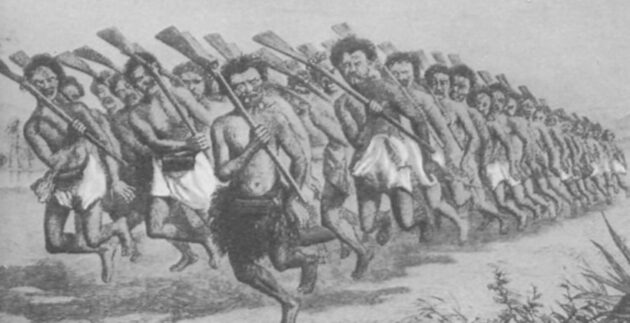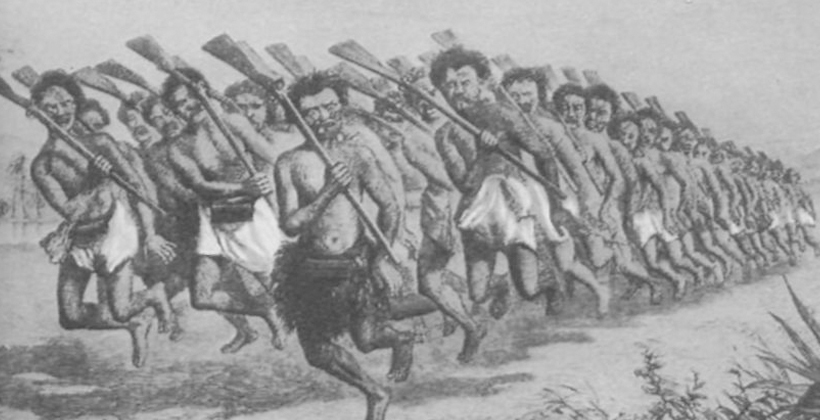The dismissal of John Banks from his radio show due to remarks made by a caller alleging that Maori were a Stone Age people got me thinking. It got me thinking because very little emphasis is given to Maori or indeed New Zealand history before the signing of the Treaty of Waitangi. The early 1800s included most notably the arrival of the first Europeans, many of whom were missionaries, plus ships with mainly sealers, whalers and traders. These people had begun arriving in the closing decades of the 18th century. A lot of the trade was in muskets which led to what became known as the Musket Wars.

Prior to the Musket Wars, another event of note was the Boyd incident. A sailing ship anchored in Whangaroa Harbour to pick up timber spars was attacked by a group of Maori who killed most of the crew and passengers. This was in retaliation for the mistreatment of a young local chief, Te Ara, who had sailed from Sydney on the ship. This was the most violent clash between Maori and Europeans since the attack on Marion du Fresne in 1772. It cemented a view of New Zealand as the ‘Cannibal Isles’ and challenged the romanticised notion of Maori as ‘noble savages’.
Thousands of Maori died in the intertribal musket wars of the 1810s, 1820s and 1830s. Many more were enslaved or became refugees. Hongi Hika put many slaves captured on his southern campaigns of 1818 to work on the land. In 1821 he invaded the Thames-Coromandel area capturing 2,000 forced labourers to add to another 2,000 slaves taken on the East Coast. They were put to work dressing flax to exchange for muskets. More deaths were recorded in the musket wars than Kiwi lives lost in the First World War.
Currently, there is in train a revamp of the history curriculum whereby it will be compulsory for New Zealand history to be taught in schools. Presumably, this period will be covered. But will these topics be included? According to Radio Waatea, the Ministry of Education’s draft curriculum has a major omission by leaving out the Musket Wars. Why? Is it a deliberate attempt to ignore a significant event in our history? Are we not supposed to learn of one of the major events in the early 1800s?
To me this reeks of political correctness gone overboard. The New Zealand Wars are freely discussed so why the secrecy over the Musket Wars? Is it because they only involve Maori? If schools are going to teach New Zealand history in its entirety then the Musket Wars should definitely be included. One can go to Wikipedia where Maori cannibalism is mentioned. One can read about Maori trading in heads as well as muskets. Is this going appear in the new curriculum?
When designing a curriculum that accurately reflects this country’s history you can’t cherry-pick what you would like to leave in or out. History is history, the good and the bad. Students need to know a people’s culture of a particular time, how they lived, behaved and the reasons why. Facts are facts and deserve to be learned. It is hoped that when the revised curriculum is completed nothing of importance will be omitted.
Please share this BFD article so others can discover The BFD.

